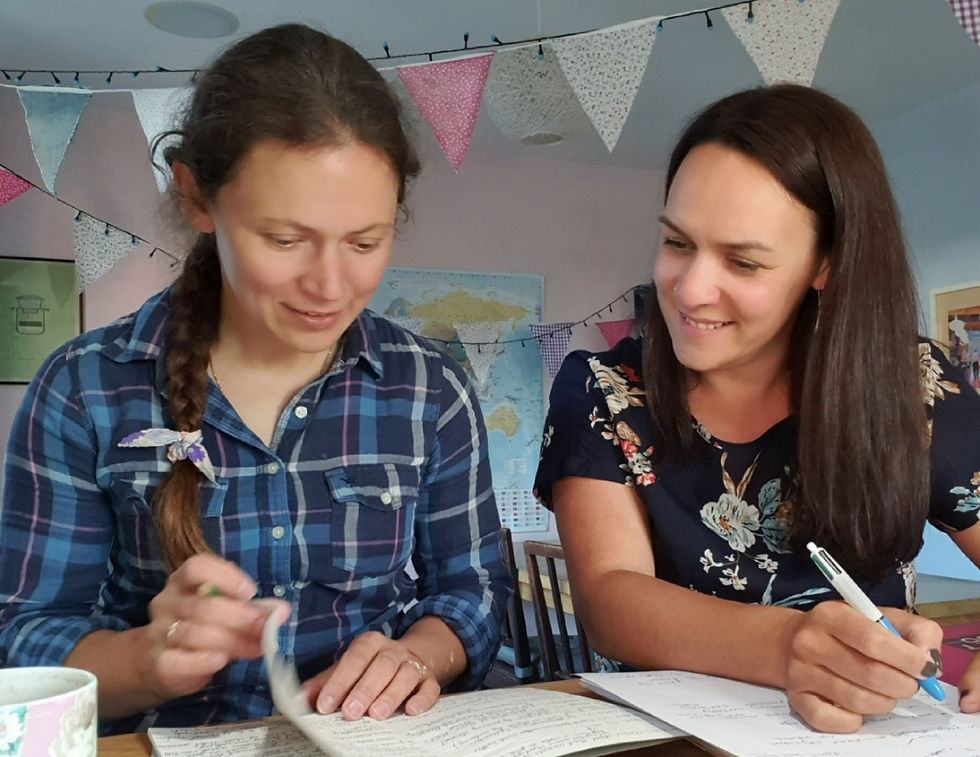How long does it take to learn English?
- Catherine Jones

- Jun 29, 2023
- 3 min read
Updated: Aug 5, 2025
Students often ask me how long it takes to learn English, and of course, the answer is always - it depends! It depends on many factors, but let's look at some of them here.
What level of fluency are you looking for?
Firstly, let's look at our first language. At age one, children can recognize about 50 words; by age three, they recognize about 1,000 words, within 4 years, it's about 10,000; and mature speech is generally achieved by around 10 or 11 years of age. That's a decade of full-time language learning. Then, we continue learning and the average adult has a vocabulary range of between 20,000 and 35,000 words. So, which level of fluency are you aiming for?
How intensively can you study?
Well, again thinking about our first language, children are exposed to their first language and using their first language all day, every day. They hear and then use individual words first for simple interactions. This develops into sentences, conversations, stories, and even arguments. They are listening to other adults and children around them, they read books and watch TV, play games, and they notice everything! Their first language is all around them. They are totally immersed!
Age!
In the above observations, we are looking at a young brain. As we know, a young brain is able to acquire and new skills fantastically efficiently. In fact, some theorists suggest that a critical period for language acquisition is between 2 and 13 years old. Oh, to be young again! Anyway, to answer the question 'how long does it take...?', we should probably allow a bit more time for an older child or adult. Don't be dishearten by this though because some studies show that satisfaction from language learning increases with age.
How much interference from you first language is there?
It's also important to note that for a first language, language proficiency is achieved without interference or interruption from a stronger language. Fully immersing in the language means that you are not constantly switching from language to language and this means you are able to make more effective continuous progress.
"When I was in England and lived with a host, I did everything in English - studying and socialising - that's when I made the most progress because I started thinking in English and even dreaming in English too. I couldn't make the same progress when I mixed with German." Inga, Germany.
Incidentally, children who learn bilingually - with no dominant language - are thought to have no slower progress in either language.
How are your study techniques?
The prior experience of learning other languages can significantly impact the speed at which someone learns English. If a person has already developed language learning strategies or experience with a language from the same language family as English, it may facilitate the learning process. It's also important to understand your own personal study preferences. For example, do you study better with formal lessons and a teacher or are you better at exploring by yourself? Are you confident and willing to be bold to find opportunities to practise.
How motivated are you?
As you might expect, motivation plays a big part too. With children, they need the language and so they get it. They don't study it, they don't even know they are learning, but they do get it and they get it very quickly. Students who focus on communication rather than grammar tend to make good progress and classroom activities focused on meaningful outcomes (task-based learning) are considered to be some of the best for progress. Remember! Language is not learnt but rather it is acquired.
Finally, what do other experts say?
This blog by Ben Night on Cambridge English's website says that motivated adult learners, typically need between 100 and 200 hours of guided learning to get from one CEFR level to the next. However, he also says that as you go up the levels, you need more hours to get to the next one. To get from A1 to A2, it typically requires 100-150 hours of guided learning, but it can take 180-260 hours to get from B1 to B2. This is because, at a lower level, you can double your language much more easily than at a higher level where even 100 more words is a small percentage.
So, what can we take from this? Well, firstly, totally immersion is the best way. Secondly, language learning is personal - find what works for you. Thirdly, you need to be motivated - you need to need the language; and Finally, there is no substitution for quantity of input.
What other factors do you think have influenced your progress so far and what do factors do you think will influence your progress in the future?




Comments